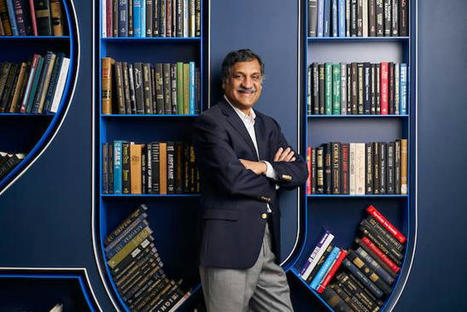CT asks Anant Agarwal about lifelong learning and how edX connects individuals to education whatever their career or life stage.
Get Started for FREE
Sign up with Facebook Sign up with X
I don't have a Facebook or a X account
 Your new post is loading... Your new post is loading...
 Your new post is loading... Your new post is loading...

Peter B. Sloep's curator insight,
April 21, 2014 3:46 PM
The article analyses the behaviour of some 150,000 registrants for the inaugural edX course — 6.002x: Circuits and Electronics, which was offered in the spring of 2012. The analysis is based on the log files for the course, constituting an exemplary case of the application of learning analytics in action (although the authors don’t use that term at all). It consists of two parts. First, the authors take the data of all registrants into account, later to focus on those relatively few (about 10,000) who managed to earn a course certificate.
Overall, this is an interesting and useful study. I have two minor qualms with it. First, the analysis focuses on those registrants who passed the exam and earned a certificate. Although the 10,000 students who managed to do this is a sizable number, it pales with the 150,000 who registred in the first place. Second, and as far as I am concerned more importantly, no attempts is made to frame the discussion in the context of a particular learning theory. However, these qualms do not detract from the value of this study, it deserves to be widely read, particularly by people who are engaged in learning analytics (who might miss it as that term is not used). @pbsloep (see for a more extensive discussion of the article my blog post at http://pbsloep.blogspot.nl/2014/04/who-does-what-in-massive-open-online.html) |
|














